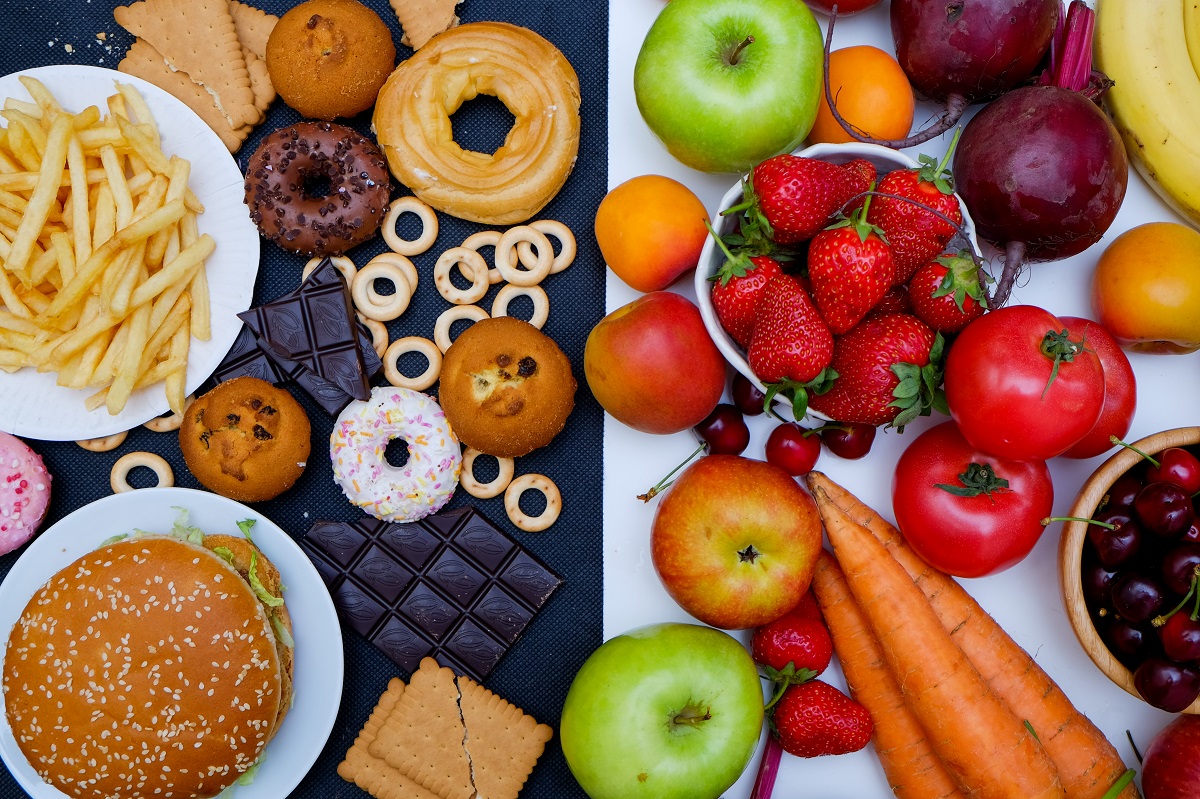Heart disease affects a quarter of Americans, and devastatingly, it’s the leading cause of death in the United States. One of the most fatal forms of heart disease, congestive heart failure, occurs when the heart fails to effectively pump blood.
Without this vital bodily function, organs throughout the body won’t be properly nourished, which can lead to numerous other medical issues. Those with heart failure are often prescribed various medications, though certain lifestyle changes can also help individuals manage the condition. If you are at risk for heart failure, it is important to know what to avoid.
A diagnosis and treatment plan typically comes with specific nutritional recommendations with guidelines about what you should and shouldn’t eat. Our Home health aide services at Alliance Homecare & our culinary partner, Epicured, can help with executing an effective treatment plan. Read on for a rundown of foods to avoid with heart failure.
What Not to Eat
Those with heart disease often experience uncomfortable swelling, fluid retention, blood sugar issues, and weight gain. Cutting out certain foods can help mitigate these symptoms while preventing the buildup of plaque that clogs the coronary arteries, a blockage responsible for heart attacks.
Foods to avoid with heart failure include those high in sodium, saturated fat, and cholesterol, as well as simple carbs and processed foods. Alcohol and caffeine should be limited as well to better maintain great heart health. Here’s what you should know.
Sodium
Eating an excess of sodium (salt) can lead to fluid retention. This can happen temporarily to otherwise healthy people and can be corrected by drinking water and eating less salt. However, it’s particularly concerning for individuals with heart disease.
Consuming salty foods may exacerbate hypertension (high blood pressure) and ultimately worsen an existing heart condition. Not only is high blood pressure bad for your heart, but it is also bad for your kidneys and can result in other health issues like chronic kidney disease, which requires continuous kidney care. Limiting your salt intake can be tricky because sodium is in most things we eat, especially processed foods. However, with the right information and planning, a low-sodium diet is definitely doable.
While it can help to stop using a salt shaker, table salt isn’t usually the biggest culprit of sodium-causing fluid retention. Canned, packaged, and otherwise highly processed fare, as well as fast food, typically contains a staggering amount of sodium.
Instead of salt, try seasoning your food with black pepper, lemon, garlic, vinegar, and spices. Cooking all your meals from scratch is ideal, but it’s not always possible. When using canned or packaged food, reach for options with a maximum of 140 milligrams per serving.
Saturated Fats and Cholesterol
Consuming large quantities of saturated fat and cholesterol can lead to clogged arteries and make existing heart problems worse. Fried food, greasy fare, and fast food are generally high in saturated fat and certain types of trans fats that may be unhealthy for people with heart failure.
Foods high in fat and cholesterol include butter, shortening, canola oil, full-fat dairy, fatty cuts of meat, and coconut oil. Bear in mind, though, that not all fat is bad. Eggs are usually OK to eat in moderation, and the fatty acids in omega-rich fish and nuts can lower blood pressure and help reduce a person’s risk of heart disease.
That being said, it’s best to limit added fats in things like salad dressing, mayonnaise, and other condiments. Instead of red meat and deep-fried poultry, try eating more fish. And instead of cooking with butter and oil, consider baking, boiling, and steaming them for a more healthy diet.
Simple Carbs
The body breaks down simple carbohydrates quicker than other foods, turning what’s not used for energy into stored fat. This is a concern for people with chronic health conditions like heart failure, Type 2 diabetes, and obesity.
Simple carbs include processed grains, such as white bread, durum semolina pasta, and white rice. Sugar is also a carb, and in the form of cane sugar, high-fructose corn syrup, fruit juice concentrate, glucose, and fructose, it’s considered a simple carbohydrate.
The main difference between simple carbs and complex carbs is that the simple variety is usually devoid of fiber. High-fiber complex carbohydrates are digested and processed more slowly. As a result, they don’t have as much of an effect on blood sugar. They’re more filling, too, which can help prevent overeating.
As an added bonus, nutrient-rich complex carbs also often contain essential vitamins and minerals like iron, potassium, and folate. Try swapping out simple carbs for healthy foods such as whole grains, fruits, vegetables, sweet potatoes, beans, and legumes.
Processed Foods
As mentioned above, people with heart failure should generally steer clear of processed foods. Processed food is usually made up of simple carbs, typically low in fiber and often high in sodium and saturated fat.
This includes a wide range of foods. The most common include processed meat like deli meat and beef jerky, canned vegetables, chips and crackers, breakfast cereals, white bread, microwavable meals, and microwave popcorn.
Alcohol
Alcohol consumption is also a concern for people with heart failure. The condition makes it hard for the heart to pump blood effectively, and drinking can make it worse by requiring the heart to work harder and thereby weakening the organ.
It’s unclear whether any amount of alcohol is safe for those with a heart failure diagnosis as it is a blood thinner and can interfere with various medications. Many healthcare professionals recommend quitting drinking, though some may say the occasional glass of wine is OK.
Caffeine
As most people know, caffeine increases your heart rate. This can be useful, as it makes you more alert and can give you the energy needed to get through your day. However, increased heart rate is concerning among those with heart disease, as it makes the body work harder to pump blood. Also, heart palpitations (irregular heart rhythms) can be a sign of a heart attack.
Caffeine is found in a number of foods and drinks, including coffee, soda, tea, and even chocolate. A small amount might be OK, but it’s best to limit your daily intake.
Can You Eat Out with Heart Failure?
We don’t expect everyone to cook at home every day, let alone every meal. Dining out can be a reasonable alternative if you know what to look for. Foods that don’t contain high amounts of sodium and fat on their own are often prepared with lots of salt and oil at restaurants.
Check the menu and even the nutritional content of each dish ahead of time, so you know what to order. Additionally, you can request that your meat is baked or grilled instead of deep-fried and that your veggies are steamed instead of stir-fried.
At-Home ADL Nutritional Care for Seniors in New York City
At Alliance Homecare in New York, we know how challenging it can be for seniors to prepare their own food, especially when suffering from a chronic illness. We offer comprehensive in home nurse care for heart failure patients, including support with ADLs (activities of daily living).
In addition to transferring, bathing, grooming, and light housework, our experienced and dedicated home health aides are available to provide nutritional support. They can assist with meal planning, grocery shopping, and food prep a few days a week or as often as every day.
Our fully licensed home care services agency (LHCSA) is known in the New York metro area for exceeding industry standards and providing compassionate, personalized care in the comfort of our patients’ own homes. Contact us today.
External sources:
- https://www.health.harvard.edu/blog/eating-too-much-added-sugar-increases-the-risk-of-dying-with-heart-disease-201402067021
- https://www.cdc.gov/nchs/fastats/leading-causes-of-death.htm
- https://www.heart.org/en/health-topics/high-blood-pressure/the-facts-about-high-blood-pressure/what-is-high-blood-pressure
- https://www.pennmedicine.org/updates/blogs/heart-and-vascular-blog/2020/august/avoid-these-foods-if-you-have-heart-failure
- https://www.ucsfhealth.org/education/diet-and-congestive-heart-failure
- https://www.healthline.com/health/food-nutrition/simple-carbohydrates-complex-carbohydrates
- https://www.nhs.uk/live-well/eat-well/what-are-processed-foods/





